Design Workshops
»Entdecke Design«
»Discover Design« - this call is especially addressed to pupils and young adults. Though a unique support programme design workshops are offered at schools by the cultural and educational initiative, founded in February 2011 by the Foundation Deutsches Design Museum and the German Design Council. The workshops or project weeks are individually developed and adapted to the age, type of school and thematic focus. Whether toothbrush, mobile light, material science, bionics, chairs, typography or guidance systems - the full spectrum is represented here. In addition, renowned designers contribute their specialist knowledge and work on a project together with a school class.

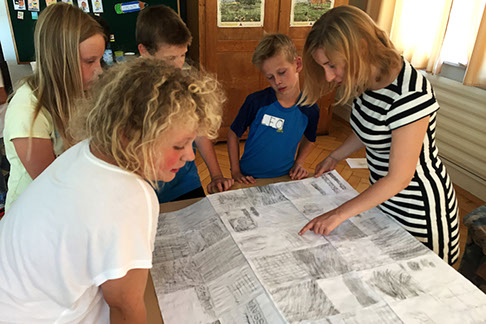
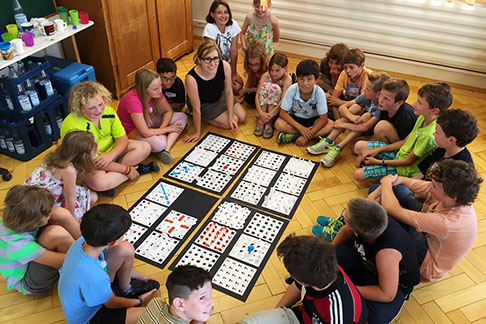
The focus of the four workshops, which d:t expert Anna, Maria Keilbach and Peter Keilbach have already conducted together in 2015, is on sensitizing perception. Precise observation and questioning is essential in order to gain an understanding of forms, functions and manufacturing. Through small exercises, such as doing frottages, photographing structure and reproducing logos from memory, the eye is trained before continuing with the basics of design and the main project. It is primarily the design process that counts, not the result. In order to make the pupils aware of this, a number of challenges are required, as our meritocracy is very goal- and result-oriented. »How can I design a product if I don't even know what it should look like or what I should do in concrete terms?«, says one student.
»This requires a different way of thinking, which distinguishes us as designers. In order to convey this to the pupils, creative methods from Design Thinking help. But also the exact discussion, the grasping of a problem and its continuous improvement is necessary - because designers are not only mere aestheticians.« Anna Keilbach
The students are introduced to the process step by step on the basis of the projects carried out: Research and analysis, the development of ideas, sketches and prototypes, the understanding of correlations and feedback sessions are essential.
At the design workshop with the 5th class of the secondary school in Bieringen, Baden-Württemberg, the pupils were curious to apply what they had learned during an introduction to 3-dimensional design. This resulted in many different, creative solutions that were produced on a scale of 1:10. The models were made of round timber. An interim presentation inspired new ideas. On the second day a selected idea was realized with the whole class. The individual parts were made in small groups with the help of a construction plan and finally joined together to form a large seating furniture. The enthusiasm of the pupils was great when the seating furniture was set up in the classroom and tested by the headmaster.
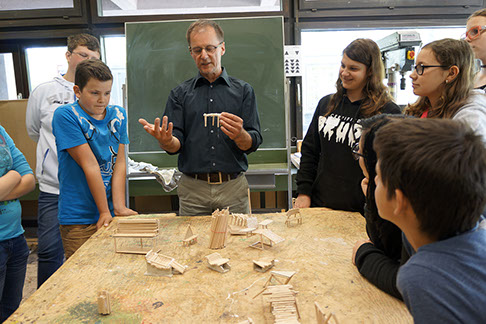
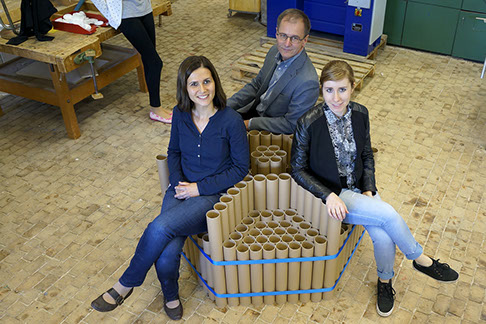
At the vocational school in Künzelsau, we dealt intensively with 2-dimensional basics and 3-dimensional structures for the direction and control of air stream. A grid served as a working template. Precise, structured and creative work was the focus and a new challenge for the students. It must be understood and realized that the first result is not necessarily the best. Rejecting drafts is a matter of course in design. Therefore, it is all the more important to encourage experimentation.
»The workshop was a welcome variety and a new experience for the students. In everyday school life there is a clear task, which is completed after execution.« Günter Müller, teacher of the vocational school Künzelsau.
The working atmosphere was enriched by discussions and excursions in order to establish a link to real projects and to demonstrate the importance of the basic principles of design. Project reports from the own professional life provided insights into an everyday work as designer. For the students of the apprenticeship »technical product designer«, the design workshop is above all a good preparation for their future careers, as they often work closely with product designers. During the workshop, design is thus not only anchored in the public sphere , but young people are also confronted with design in concrete projects – the best basis for creating an understanding of design.
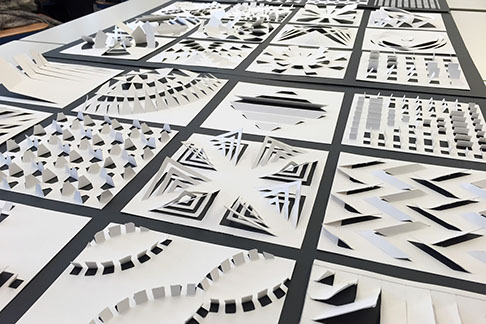
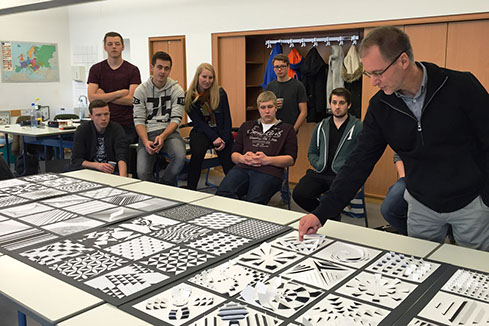
At the school in Aalen, we introduced the four important steps of the design process: Research, analysis, idea development and design in order to fulfil our workshop motto »Design ≠ Art«. The research contained a collection of plenty chairs. Hereby we thought about different use cases, e.g. a desk chair, dentist's chair, rocking chair, bar stool. Afterwards, the pupils analysed the proved chairs due to its shape, number of components and material. Then the students were allowed to become creative with little frills (nettle cloth and string). This reduction offered a challenge, because idea generation was now in demand. So the pupils learned to integrate the components of the given chair in different ways. Experimentation, trial and error were an important learning ending up with a homogeneous chair series. The students themselves were amazed at how varied the techniques and results are - despite the enormous limitations imposed by the tools provided.
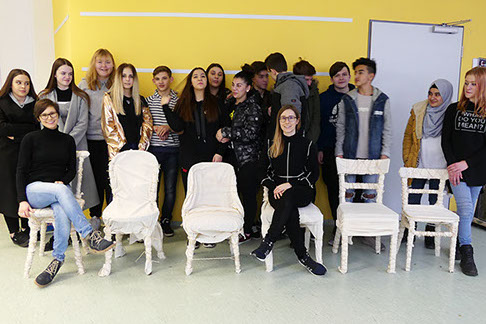
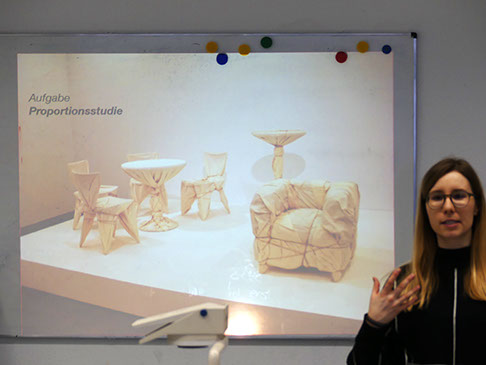
A diverse range of topics is intended to generate even more enthusiasm for the design workshops in the future. »By 2017, we want to reach 15,000 children, adolescents and young adults«, stated Lutz Dietzold, Vice-Chairman of the Board Foundation Deutsches Design Museum and Managing Director of the German Design Council.